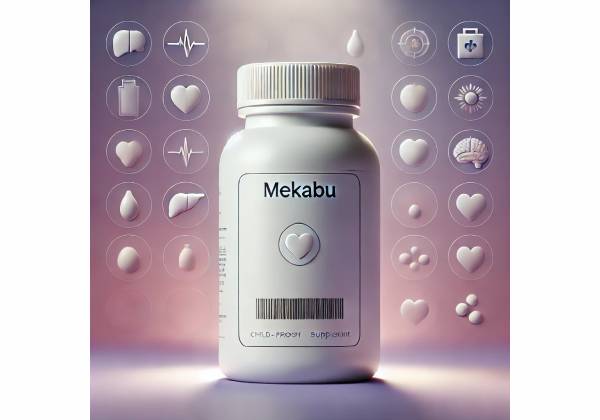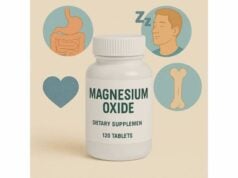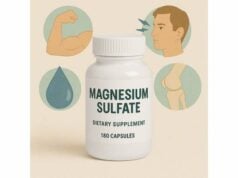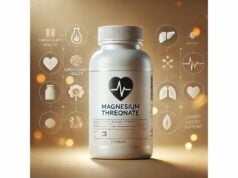
Mekabu—the ruffled, root-end sporophyll of the brown seaweed Undaria pinnatifida (wakame)—has a distinct silky texture and a dense payload of soluble fibers (fucoidan, alginate, laminarin), minerals (notably iodine), and marine polyphenols. In Japan and Korea it is eaten daily as a side dish or added to soups and noodles; elsewhere it is showing up in seaweed salads, powders, and capsules. People turn to mekabu for digestive comfort, cholesterol and blood sugar support, and immune balance, with growing interest in its prebiotic and antioxidant effects. Unlike generic “seaweed,” mekabu concentrates the plant’s protective polysaccharides, which are responsible for much of its thick, mucilaginous mouthfeel and many of its studied bioactivities. This guide translates the science into clear, practical steps: what mekabu is, how it may help, who is most likely to benefit, how to use it in meals or supplements, and how to avoid common mistakes—especially around iodine. You will find specific dosage ranges, timing tips, and safety guardrails so you can decide whether mekabu fits your goals and how to use it wisely.
Quick Overview
- Soluble fibers in mekabu (fucoidan and alginate) support regularity and may aid immune balance.
- Typical food use: 2–3 g dried mekabu per day (about 10–20 g rehydrated); fucoidan supplements: 300–1,000 mg/day.
- High iodine content: keep total iodine intake at or below 1,100 mcg/day for adults.
- Avoid if you have thyroid disease sensitive to iodine, take thyroid medication, or use anticoagulants without medical guidance.
- Start small, increase gradually, and rinse or briefly blanch to moderate iodine if needed.
Table of Contents
- What is mekabu?
- Does mekabu really work?
- Science-backed benefits you can expect
- How to use mekabu in daily life
- How much mekabu per day?
- Side effects and who should avoid
- Evidence at a glance
What is mekabu?
Mekabu is the fertile, frilled frond that forms at the base of the wakame plant (Undaria pinnatifida). If the flat blades you see in miso soup are the “leaves,” mekabu is the scalloped skirt near the holdfast. That structure stores and releases spores—one reason it is naturally rich in protective compounds the plant uses for defense and reproduction. Those same compounds give mekabu its slippery gel and many of its studied health effects.
Three polysaccharides dominate:
- Fucoidan, a sulfated fiber unique to brown algae. It lends the characteristic viscosity and contributes to immune modulation, antioxidant effects, and potential antiviral actions.
- Alginate, a gel-forming fiber prized in food science. In the gut it swells with water, forming a soft gel that can slow gastric emptying and bind bile acids, with downstream effects on appetite and cholesterol.
- Laminarin, a β-glucan–type storage polysaccharide that acts as a fermentable prebiotic fiber for colonic microbes, producing short-chain fatty acids (SCFAs) like butyrate.
Mekabu also concentrates iodine, a trace mineral essential for thyroid hormone production. Iodine yields vary widely by species, harvest site, and processing. Wakame generally contains less iodine than powerhouse kelps such as kombu, but amounts still add up quickly—especially from dried flakes or powders. If iodine sensitivity is a concern, two kitchen steps can help: rinsing thoroughly and briefly blanching in unsalted water, both of which reduce iodine moving from fronds to cooking water.
Beyond polysaccharides and iodine, mekabu contains phlorotannins (seaweed polyphenols), magnesium, potassium, calcium, and small amounts of vitamins A, K, and folate. As food, it is low in calories and sodium (if rinsed) and naturally gluten-free. As an extract, it typically appears as “fucoidan from Undaria pinnatifida” standardized to a certain sulfate content or molecular weight.
Terminology tip: in stores you may see “mekabu,” “wakame sporophyll,” or “Undaria pinnatifida fucoidan.” All refer back to the same plant part; what differs is the form—salted fresh, dried and cut, freeze-dried shreds, powdered culinary seasoning, or encapsulated extract. Choose by your goal: whole-food versatility for meals, or measured dosing with standardized extracts for targeted use.
Does mekabu really work?
The short answer is that mekabu is food first, with promising but still evolving human evidence around specific outcomes. High-quality data exist for two of its hallmark fibers—fucoidan and alginate—while comprehensive, modern trials on whole mekabu as a daily food are fewer. Here is how the evidence stacks up.
Immune response: Randomized trials using fucoidan derived from Undaria pinnatifida have shown improved antibody responses to vaccination in older adults and exploratory benefits in other immune contexts. Mechanistically, fucoidan can interact with pattern recognition receptors and influence natural killer (NK) cell activity and cytokine signaling. These effects align with traditional use (winter soups, convalescent foods) but now have controlled data behind them—particularly in populations with blunted vaccine responses.
Metabolic outcomes: Alginate’s gel-forming properties are well described. When taken before meals, alginate can reduce subjective appetite and, in some studies, modestly lower daily energy intake. Longer programs pairing alginate with lifestyle changes suggest small but meaningful reductions in body weight. Not every study is positive; null findings exist when dose, timing, or formulation are suboptimal. As a food fiber rather than a drug, effects are expected to be modest and cumulative.
Gut comfort and regularity: Mekabu’s soluble fibers support stool softness and frequency without stimulant effects. In practice, people often notice smoother digestion over 1–2 weeks. Because these fibers are fermentable, a brief adjustment period—more gas or bloating—can occur when intake jumps quickly.
Cholesterol and bile acids: Alginate can bind bile acids in the small intestine, leading to increased excretion and a gradual pull on cholesterol stores to synthesize new bile. The magnitude of LDL change is typically small (think single-digit percentages) and depends on overall diet quality.
Antioxidant and antiviral signals: Laboratory studies show that mekabu fucoidan can scavenge reactive species and interfere with viral attachment in cell models. These are mechanistic insights rather than direct clinical outcomes, but they help explain why immune and respiratory endpoints draw interest.
Bottom line: If you view mekabu as a flavorful way to add soluble fiber, minerals, and unique marine compounds to your plate, expectations will be realistic. For immune support in older adults or those with low fiber intake, the case is clearest. For weight, cholesterol, and glycemic control, benefits tend to be incremental and hinge on total diet and consistency. Whole-food mekabu is the right starting point; standardized fucoidan or alginate products are options for those chasing specific endpoints and precise dosing.
Science-backed benefits you can expect
1) Smoother digestion and regularity
Mekabu’s soluble fibers absorb water, forming a soft gel that helps stools pass more comfortably. Compared with stimulant laxatives, gel-forming fibers work gradually and do not cause dependency. Many people notice a difference within 7–14 days at food-level intakes. Because laminarin and fucoidan are fermentable, they feed beneficial microbes; SCFAs produced—especially butyrate—nourish colon cells and help maintain a healthy mucosal barrier.
2) Support for immune readiness
In older adults, oral fucoidan from Undaria pinnatifida has been shown to enhance antibody responses after seasonal influenza vaccination. That does not mean fucoidan prevents infections on its own, but it suggests a better “training response” when the immune system is challenged. Day to day, users often describe fewer winter slumps or faster bounce-back from minor upper-respiratory annoyances—signals consistent with immune-modulatory—not immune-stimulating—activity.
3) Appetite and weight-management assist
Alginate’s satiety effect depends on dose and timing. Taken shortly before meals (or eaten within a meal as rehydrated mekabu), the hydrated gel occupies space and can blunt rapid gastric emptying. Several controlled studies report reduced energy intake or small decreases in body weight over weeks when alginate is part of a structured plan. Think of it as a nudge that helps a high-fiber plate do its job—not as a standalone fix.
4) Heart and metabolic markers
By binding bile acids and modestly slowing carbohydrate absorption, mekabu fibers can contribute to small improvements in LDL cholesterol and postprandial glucose. Effects are additive with other lifestyle changes (more legumes, whole grains, and vegetables; regular activity).
5) Gentle mineral top-up—especially iodine
Wakame is a natural iodine source. For people in low-iodine regions or who avoid dairy and iodized salt, occasional mekabu can help narrow the gap. The flip side is that too much seaweed can overshoot daily iodine needs. You will find precise guardrails in the dosage and safety sections below so you can use mekabu’s iodine content advantageously without excessive intake.
6) Culinary versatility, low environmental footprint
Beyond health markers, mekabu is simply useful. It adds gloss and body to soups, bright crunch to salads when lightly blanched, and savory depth to noodle bowls. Seaweed cultivation has a small land footprint and requires no freshwater or fertilizer, making it one of the more sustainable ways to diversify fiber intake.
What this section is not: It is not a promise of dramatic outcomes. Mekabu’s value lies in steady, diet-level benefits—digestive comfort, mineral sufficiency, better fiber diversity—plus specific use cases (e.g., immune support in older adults) with encouraging human data. Used this way, it fits comfortably alongside conventional advice: balanced meals, adequate protein, movement, and sleep.
How to use mekabu in daily life
Choose your form
- Salted fresh (refrigerated): Rinse thoroughly under cold water to remove excess salt and surface iodine. Slice into thin ribbons for noodles or salads.
- Dried shreds or flakes: Soak 5–10 minutes in cool water; they swell 3–5×. Rinse once more if you plan to eat a larger portion and want to moderate iodine.
- Powder: Stir ½–1 teaspoon into broths, dressings, or smoothies for a quick soluble fiber boost.
- Capsules/tablets (fucoidan or alginate): Used when dietary targets require precise dosing, or for those who do not enjoy the texture.
Cooking ideas (five 5-minute templates)
- Miso-mekabu soup: Rehydrate mekabu, squeeze dry, and whisk into hot miso broth with soft tofu and scallions.
- Citrus-soy salad: Toss rinsed ribbons with rice vinegar, soy sauce or tamari, a squeeze of yuzu or lemon, sesame oil, and toasted seeds.
- Soba bowl: Add mekabu to cold soba with cucumbers and a light tsuyu dressing; top with shredded nori and grated ginger.
- Egg drop seaweed broth: Simmer chicken or vegetable stock, stream in beaten egg, stir in mekabu, and finish with white pepper.
- Grain bowl glaze: Whisk mekabu powder into warm dashi or vegetable broth to gloss brown rice and roasted vegetables.
Prep pointers that matter
- Rinse and (briefly) blanch if you want to reduce iodine or salt. Twenty to thirty seconds in simmering water, then shock in ice water, preserves color and texture.
- Avoid overcooking. Prolonged boiling can break down gels and turn mekabu mushy. Add it at the end of cooking.
- Pair with protein. Combining mekabu with tofu, fish, or eggs creates more balanced meals and steadier blood sugar.
- Hydration counts. These fibers need water to do their best work. Drink a glass of water with your mekabu meal or capsule.
Supplements vs. food
If you enjoy the taste, food first is the simplest way to integrate mekabu. Supplements make sense if you are aiming for a study-like fucoidan dose or if you need a salt-free, iodine-moderated option. Choose products that specify the source (Undaria pinnatifida), standardization (e.g., % sulfate or mg fucoidan per capsule), and conduct heavy metal testing. For alginate, look for sodium alginate with a clear per-dose gram amount.
When to take it
For appetite effects, take alginate or a mekabu-rich appetizer 10–15 minutes before meals. For digestive comfort or general dietary fiber, timing is less critical—daily consistency matters more. For fucoidan immune support protocols, follow the product’s schedule; common patterns are 300–500 mg/day taken with food.
How much mekabu per day?
Whole-food mekabu (dried): A practical daily range for most adults is 2–3 g dried mekabu, which rehydrates to roughly 10–20 g wet. This portion delivers a useful bump in soluble fiber without overwhelming iodine. If you are new to seaweed or have a sensitive gut, start with 1 g dried (about a tablespoon wet), every other day for a week, then increase as tolerated.
Fucoidan supplements: Human trials in older adults used 300 mg/day of fucoidan from Undaria pinnatifida over several weeks. Commercial products often provide 300–1,000 mg/day in divided doses. If your goal is general immune support, a 300–500 mg daily dose is a reasonable starting point; for short-term, targeted use around the winter season, some programs use the upper end of that range. Always check the actual mg fucoidan per capsule, not just “seaweed extract.”
Alginate for satiety: Appetite and energy-intake studies commonly use 1–5 g sodium alginate taken before meals, with water. Gel strength and timing matter: take it with 250–300 mL water and allow 10–15 minutes to hydrate before eating.
Iodine guardrails (critical):
- Adults: Keep total iodine (all sources) ≤1,100 mcg/day.
- Pregnancy: Aim for 220 mcg/day (from food plus prenatal), unless your clinician advises otherwise.
- Lactation: Aim for 290 mcg/day.
- Children and teens: Needs vary by age; pediatric ranges are lower than adult limits.
Because iodine varies widely, think in patterns:
- If you use 2–3 g dried mekabu and you consume iodized salt or dairy, lean toward the low end of seaweed intake most days.
- If you avoid dairy and iodized salt and live in a low-iodine region, mekabu can help fill the gap, but still stay within adult limits.
- To moderate iodine on a “mekabu-heavy” day, rinse thoroughly and briefly blanch; some iodine migrates to the cooking water, which you can discard.
Timing and stacking
- Split doses for capsules: half with breakfast, half with dinner to minimize GI effects.
- Rotate seaweeds: if you also enjoy nori, kombu, or dulse, rotate through the week to avoid iodine spikes from any single species.
- Two-week check-in: Notice digestion, appetite, energy, and sleep. Adjust the portion up or down to match your goals and how you feel.
Who should individualize dosing
Anyone with thyroid disease (hypo- or hyperthyroidism), on thyroid medication, or with autoimmune thyroiditis should consult their clinician before regular seaweed intake. If you are on anticoagulants or have a bleeding disorder, avoid high doses of fucoidan and discuss any supplement use with your care team.
Side effects and who should avoid
Common, usually mild
- Digestive changes: Gas, bloating, or looser stools when intake increases quickly. Solution: build up gradually, drink extra water, and split portions across meals.
- Taste and texture aversion: Mekabu’s gloss is a feature; if it is too much, mince it finely, add acid (vinegar, citrus), and serve it chilled for a cleaner bite.
Iodine-related concerns
- Excess iodine can trigger thyroid dysfunction in susceptible people. Keep intake within daily limits and avoid stacking multiple seaweed products the same day. Rinsing and brief blanching help reduce iodine.
- Thyroid medications (levothyroxine and others) require stable iodine intake. If you add regular seaweed, keep the amount consistent and inform your clinician so TSH monitoring can account for the change.
Medication and condition cautions
- Anticoagulants / antiplatelet drugs: Fucoidan has mild anticoagulant activity in vitro and may potentiate effects at high, concentrated doses. Food-level mekabu is unlikely to matter, but avoid fucoidan supplements unless your clinician agrees.
- Seafood allergies: Seaweed is not shellfish, but cross-contamination can occur in processing. Choose brands that test for allergens if you are highly sensitive.
- Kidney disease: Some seaweeds contain notable potassium; while mekabu is not a high-potassium food in small portions, discuss routine use with your renal dietitian.
- Pregnancy and lactation: Iodine is essential but the margin for excess is narrow. Prioritize consistent prenatal supplementation as advised; if you eat seaweed, keep portions small and infrequent unless your obstetric clinician provides tailored guidance.
Quality and contaminants
Reputable producers test for heavy metals (arsenic, cadmium, lead, mercury). Look for COAs (Certificates of Analysis) or third-party testing seals. Salted products can be high in sodium; rinse well. Dried products should smell clean and marine, not fishy or musty.
When to stop and seek care
- New palpitations, tremor, heat intolerance, or unusual fatigue (possible thyroid symptoms).
- Easy bruising or bleeding if using high-dose fucoidan along with blood thinners.
- Persistent GI upset beyond two weeks at low doses.
Bottom line
Most healthy adults tolerate small, regular amounts of mekabu well. Side effects are typically dose-related and preventable with gradual increases, adequate hydration, and attention to iodine. If in doubt—especially with thyroid or anticoagulation therapy—choose food-level portions and loop in your healthcare team.
Evidence at a glance
- Immune support in older adults: A randomized, placebo-controlled trial in people over 60 used 300 mg/day fucoidan from Undaria pinnatifida and reported higher antibody titers after influenza vaccination versus placebo. NK cell activity trended upward in the fucoidan group. These data support fucoidan as an adjunct to, not a replacement for, vaccination or other standard care.
- Iodine: amounts and bioavailability from wakame meals: Controlled feeding research shows that wakame-containing meals deliver measurable iodine and increase urinary iodine shortly after consumption. Typical wakame salad portions can supply hundreds of micrograms of iodine, depending on preparation. Practical takeaways: keep total daily iodine ≤1,100 mcg for adults; moderate seaweed intake if you also use iodized salt or dairy; and use rinsing/blanching when larger portions are planned.
- Alginate and appetite/weight: Pre-meal 1–5 g sodium alginate has reduced ad libitum energy intake in several trials; longer programs combining alginate with healthy eating patterns report modest weight reductions. Not all studies agree—dose, gelling characteristics, and timing are critical. As part of a dietary pattern, alginate appears to be a helpful adjunct rather than a primary intervention.
- Composition matters: Fucoidan extracted from mekabu (sporophyll) has been characterized as a galactofucan (fucose- and galactose-rich) with specific sulfate patterns. Molecular weight and sulfate content influence bioactivity; standardized extracts used in research specify these parameters, which is why supplement labels listing mg fucoidan and standardization offer more predictability than generic “seaweed” powders.
- Safety frame: The adult tolerable upper intake level for iodine is 1,100 mcg/day. People with thyroid disease, pregnant or lactating individuals, and those on anticoagulant therapy should individualize seaweed intake and avoid concentrated fucoidan unless medically guided.
How to apply the evidence
- If your goal is digestive comfort and more soluble fiber, add 2–3 g dried mekabu daily to soups or salads.
- For immune support in older adults, consider 300–500 mg/day fucoidan from Undaria pinnatifida during the winter season, after discussing it with a clinician.
- For appetite support, trial 1–3 g sodium alginate 10–15 minutes before main meals, ensuring adequate water intake and watching for GI tolerance.
References
- Iodine – Health Professional Fact Sheet 2024 (Guideline)
- Bioavailability of iodine from a meal consisting of sushi and wakame 2023 (Human Study)
- Supplementation of elderly Japanese men and women with fucoidan from seaweed increases immune responses to seasonal influenza vaccination 2013 (RCT)
- Fucoidan Extracted From Sporophyll of Undaria pinnatifida Grown in Weihai, China – Chemical Composition and Comparison of Antioxidant Activity of Different Molecular Weight Fractions 2021 (Study)
- Novel Therapeutic Approach for Obesity: Seaweeds as an Alternative Medicine with the Latest Conventional Therapy 2024 (Systematic Review)
Disclaimer
The information in this article is educational and does not substitute for personalized medical advice, diagnosis, or treatment. Seaweed products vary widely in iodine content and composition. If you have thyroid disease, take thyroid or anticoagulant medication, are pregnant or breastfeeding, or plan to use concentrated fucoidan or alginate supplements, consult your healthcare professional before making changes. If you experience unusual symptoms after consuming seaweed or supplements, stop use and seek medical guidance.
If you found this helpful, please consider sharing it on Facebook, X (formerly Twitter), or your favorite platform, and follow us for future updates. Your support helps us keep creating clear, practical guides like this one.










